
Recent Blog Posts
Is a Smash and Grab Treated the Same as Burglary in Maryland?
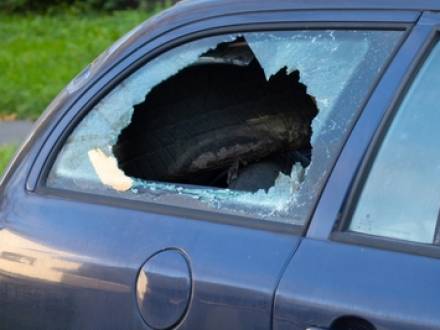 Just one short month after opening its doors, a seafood restaurant in Prince George’s County was targeted in a smash-and-grab that caused significant property damage. The incident occurred around 3:00 a.m. Surveillance videos show four people shattering the glass front door, ransacking the register, and fleeing the scene.
Just one short month after opening its doors, a seafood restaurant in Prince George’s County was targeted in a smash-and-grab that caused significant property damage. The incident occurred around 3:00 a.m. Surveillance videos show four people shattering the glass front door, ransacking the register, and fleeing the scene.
The suspects only managed to get away with about $400. The investigation is ongoing. The legal differences between a smash-and-grab and burglary in the state of Maryland are detailed below. If you are facing either charge, your best course of action is to consult with an Annapolis, MD criminal defense lawyer.
Smash-and-Grab vs. Burglary: What’s the Legal Difference?
A "smash-and-grab" in Maryland is not a formal legal charge; rather, it is a descriptive term for a specific type of burglary or theft. Burglary is defined as the unlawful entry into a structure with the intent to commit a crime while inside. A smash-and-grab refers to a forceful method used to carry out the theft.
Trash as Evidence: Can Police Search Your Garbage for Drugs?
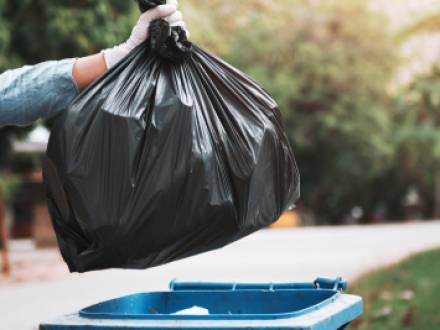 Perhaps the police are trying to make a drug case against you, and you look out your window to see them digging through the trash you just set out for collection. Most of us never think twice about what we throw away. From old pill bottles, empty baggies, and receipts to even more damning evidence like drug paraphernalia, it all goes into the trash.
Perhaps the police are trying to make a drug case against you, and you look out your window to see them digging through the trash you just set out for collection. Most of us never think twice about what we throw away. From old pill bottles, empty baggies, and receipts to even more damning evidence like drug paraphernalia, it all goes into the trash.
You should know that what you put in your trash can in the state of Maryland has the potential to become evidence in drug charges filed against you. In fact, "trash pulls" are often used as a method of gathering information prior to securing a search warrant. Can the police search through your garbage looking for evidence against you? The answer to that depends on the circumstances surrounding the trash pull.
If you see law enforcement going through your trash, or you have reason to believe they have done so, do not wait until charges are filed against you. Speak to an experienced Annapolis, MD criminal defense attorney as quickly as possible so he or she can begin building a strong defense on your behalf.
When Medical Conditions Affect Assault Charges in Maryland
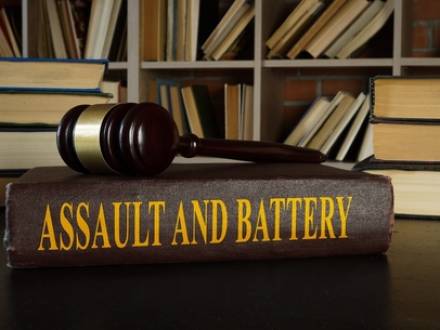 Assault charges in Maryland can arise from many different situations. Some of these situations involve intentional acts of violence, while others result from misunderstandings or circumstances that are beyond an individual’s control. In some cases, a defendant’s medical condition could explain his or her actions.
Assault charges in Maryland can arise from many different situations. Some of these situations involve intentional acts of violence, while others result from misunderstandings or circumstances that are beyond an individual’s control. In some cases, a defendant’s medical condition could explain his or her actions.
Sudden behavior changes, confusion, or involuntary movements that are mistaken for aggressive acts can be attributed to conditions like epilepsy, dementia, certain mental health disorders, and even diabetes. The law does not automatically excuse an assault because of a medical condition; however, health factors can play a crucial role in the defense strategy.
If the act was involuntary, the required intent was not present, or there is an alternative explanation for the assault that hinges on a medical condition, the individual may not be held accountable. Suppose you have been charged with assault, and you have a medical condition that can explain the assault. In that case, it is important that you consult with an experienced Annapolis, MD, criminal defense lawyer.
Can Caffeine Adversely Affect a Maryland Breathalyzer Test?
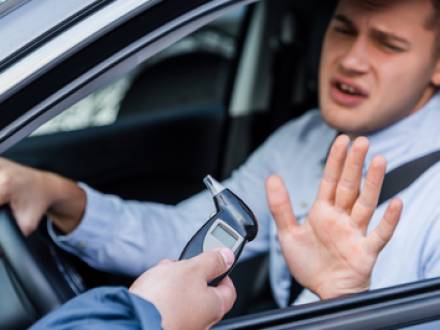 When we think of substances that could potentially interfere with a breathalyzer test, coffee is hardly the first thing that comes to mind. While coffee does not contain alcohol, and caffeine itself contains no alcohol, it appears that highly caffeinated beverages can possibly skew a breathalyzer test.
When we think of substances that could potentially interfere with a breathalyzer test, coffee is hardly the first thing that comes to mind. While coffee does not contain alcohol, and caffeine itself contains no alcohol, it appears that highly caffeinated beverages can possibly skew a breathalyzer test.
If you are facing Maryland DUI charges after consuming energy drinks, excessive amounts of coffee, or other types of stimulants, you should understand how those substances could alter your BAC test. An experienced Anne Arundel County, MD DUI lawyer can examine the evidence, weigh the strength of the state’s case against you, and begin building a solid defense on your behalf.
What is the Role of PBTs and Breathalyzers in Maryland DUI Cases?
A PBT (Preliminary Breath Test, or Portable Breath Test) is a roadside device used by police officers to establish probable cause for an arrest. The results of the PBT are not admissible in court because these devices are generally considered less accurate than breathalyzers due to environmental conditions and less frequent calibration. Refusing a PBT in Maryland has no penalty and does not affect the obligation to take a subsequent breathalyzer test.
Burglary vs. Robbery vs. Trespassing in Maryland
 According to CBS News in Baltimore, there has been a significant uptick in burglaries and robberies across the state in 2024 and the first half of 2025. As of 2025, there have been 545 reported victims of break-ins, burglaries, and robberies. During the summer of 2024, there were 409 break-ins and robberies. Many of these crimes were committed while people were away on vacation.
According to CBS News in Baltimore, there has been a significant uptick in burglaries and robberies across the state in 2024 and the first half of 2025. As of 2025, there have been 545 reported victims of break-ins, burglaries, and robberies. During the summer of 2024, there were 409 break-ins and robberies. Many of these crimes were committed while people were away on vacation.
Police warn that if you are heading out of town on vacation, do not post that information on social media, leave lights on in your home, and suspend your newspaper and mail services so it will not be apparent that you are away. Installing surveillance cameras and letting your neighbors know you will be away are also recommended.
If you have been charged with burglary, robbery, or trespassing in the state of Maryland, it is important that you understand the legal distinctions between these three criminal offenses. All three offenses involve entering property without permission, but the ultimate charges and penalties differ significantly.
Is It Illegal to Have a Loaded Gun in Your Car in Maryland?
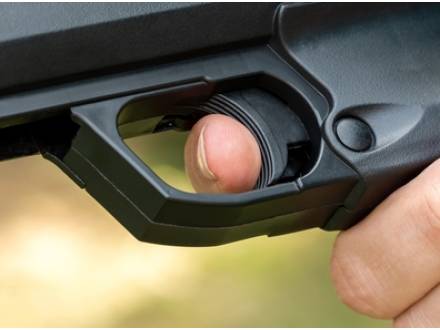 A Dundalk, MD man is currently facing gun charges after an alleged road rage incident in Baltimore County. The 26-year-old man has been charged with using a firearm during a felony crime, as well as having a loaded handgun in his vehicle, along with assault charges and drug charges. Another driver alleged that the man pointed a "silver firearm" at him during a road-rage interaction, and the police later recovered three loaded firearms at the suspect’s place of employment and his home.
A Dundalk, MD man is currently facing gun charges after an alleged road rage incident in Baltimore County. The 26-year-old man has been charged with using a firearm during a felony crime, as well as having a loaded handgun in his vehicle, along with assault charges and drug charges. Another driver alleged that the man pointed a "silver firearm" at him during a road-rage interaction, and the police later recovered three loaded firearms at the suspect’s place of employment and his home.
Gun laws across the state of Maryland are some of the strictest in the nation. Understanding what is legal and what is not, especially if you come from a state with more lenient gun laws, can be confusing, especially regarding transporting a loaded gun in a vehicle. Perhaps you have a concealed carry permit, either from the state of Maryland or another state. Or perhaps you are traveling and have a loaded firearm in your vehicle for protection. Either way, you could find yourself facing serious charges with serious penalties.
Is Conspiracy to Commit Murder as Serious as Murder?
 Conspiracy charges are often filed against those involved in violent crimes like murder, as well as charges like fraud, embezzlement, distribution of drugs, or any type of crime involving more than one person. Alleged gang members are often charged with conspiracy if the criminal offense is "gang-related." Organized crimes may also incur conspiracy charges.
Conspiracy charges are often filed against those involved in violent crimes like murder, as well as charges like fraud, embezzlement, distribution of drugs, or any type of crime involving more than one person. Alleged gang members are often charged with conspiracy if the criminal offense is "gang-related." Organized crimes may also incur conspiracy charges.
Conspiracy is charged when the prosecution believes a person has knowledge that a crime was about to be committed or when a person benefits from the commission of a criminal act. Because conspiracy crime statutes are often broadly worded, prosecutors may file conspiracy charges as a way of gaining leverage over a wider range of people than those charged with the actual commission of the crime.
If you have been charged with conspiracy, especially conspiracy to commit murder, it is extremely important that you speak to a knowledgeable Centreville, MD violent crimes attorney. The penalties for a conspiracy charge are often almost as harsh as the underlying crime, so having an experienced criminal defense attorney is crucial.
Are Assault Penalties Harsher When the Victim is Elderly?
 Recently, two teens were arrested for punching one elderly woman, stealing another’s car, and robbing an elderly man at knifepoint, all while these elderly individuals were working in community gardens in the area. While assault is a serious crime with serious penalties on its own, assaulting an elderly person can result in enhanced penalties. If you are facing assault charges, it is important to speak to an experienced Centreville, MD criminal defense lawyer.
Recently, two teens were arrested for punching one elderly woman, stealing another’s car, and robbing an elderly man at knifepoint, all while these elderly individuals were working in community gardens in the area. While assault is a serious crime with serious penalties on its own, assaulting an elderly person can result in enhanced penalties. If you are facing assault charges, it is important to speak to an experienced Centreville, MD criminal defense lawyer.
What is Assault Under Maryland Law?
Assault in the first degree is found in Sections 3-202 and includes causing or attempting to cause serious physical injury to another person or assaulting a person with a firearm. A person could be charged with assault in the first degree if he or she creates an "apprehension of imminent harm in the mind of the victim," even if the victim is never actually touched. Assault in the first degree is a felony offense with penalties of up to 25 years in prison.
Maryland Gun Permits Spike in 2025
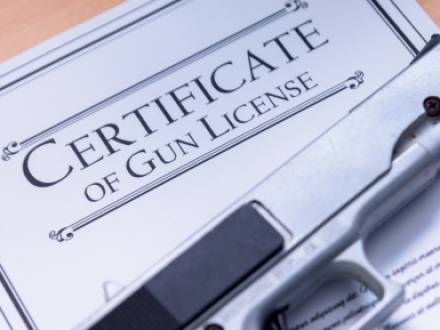 In 2020, fewer than 50,000 Maryland residents had handgun carry permits. Five years later, that number is 200,540, according to the Maryland State Police. While this number accounts for only about 3 percent of the entire state’s population, it has more than quadrupled since five years ago. It is also larger than the entire population of Annapolis, Frederick, and Columbia cities.
In 2020, fewer than 50,000 Maryland residents had handgun carry permits. Five years later, that number is 200,540, according to the Maryland State Police. While this number accounts for only about 3 percent of the entire state’s population, it has more than quadrupled since five years ago. It is also larger than the entire population of Annapolis, Frederick, and Columbia cities.
Like everything involving firearms in America, the consequences of the gun permit spike are complex. Those who advocate for loosening Maryland’s gun laws claim that gun owners in the state are law-abiding and that when these law-abiding citizens have guns, public safety increases. Those who oppose loosening gun regulations insist that more guns equal more gun violence and more gun crimes.
Is Self-Defense a Valid Defense for Maryland Assault Charges?
 Perhaps you have been charged with assault in Maryland. These are serious charges with serious penalties, which benefit significantly from a strong, experienced criminal defense attorney. You may have simply been defending yourself and cannot believe you have been charged with assault.
Perhaps you have been charged with assault in Maryland. These are serious charges with serious penalties, which benefit significantly from a strong, experienced criminal defense attorney. You may have simply been defending yourself and cannot believe you have been charged with assault.
Many assault charges result from incidents in bars or other public places when tempers boil over due to perceived or real issues. Assault charges can be filed even when the alleged victim was not injured but only believed there was an actual threat of harm or injury. If you are facing assault charges, it is important to have a knowledgeable Annapolis, MD assault lawyer.
What is Assault in Maryland?
In Maryland, a defendant can be charged with first-degree assault or second-degree assault. First-degree assault is a felony offense that is charged when a defendant intentionally causes or attempts to cause serious physical injury to another person, strangles another person, or commits an assault with a firearm.




